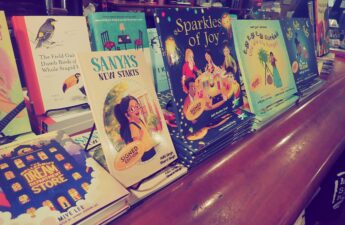There are several other platforms that bookstores consider when sourcing books, particularly if they avoid stocking books from Amazon. Here are some of the most popular alternatives:
1. IngramSpark
IngramSpark is one of the largest and most widely accepted book distribution platforms. It offers print-on-demand (POD) services and distributes books to bookstores and libraries worldwide through Ingram Content Group. Many independent bookstores prefer ordering through Ingram due to its extensive catalog and the 40-55% wholesale discount that booksellers can receive. The platform also makes books available through major retailers like Barnes & Noble and independent stores.
2. Lightning Source
Owned by Ingram, Lightning Source is another popular option for print-on-demand and distribution. It’s geared more toward small publishers and provides access to Ingram’s distribution network. Lightning Source offers better control over print quality and can be a good fit for authors or publishers who want more flexibility.
3. BookBaby
BookBaby offers self-publishing services, including professional editing, formatting, and cover design. They distribute books to retailers like Barnes & Noble, Books-A-Million, and other independent stores. They also work with wholesalers that provide access to physical bookstores. Additionally, BookBaby can distribute eBooks to a wide range of platforms, excluding Amazon.
4. Draft2Digital
Although primarily known for eBook distribution, Draft2Digital has expanded into print distribution through its partnership with Ingram. It can get your books into major retailers and libraries, giving authors a way to reach physical bookstores without using Amazon’s KDP. While eBooks are their strong suit, they’re a growing option for print books as well.
5. Kobo Writing Life
Kobo is well-known for eBook distribution, especially internationally, and works with many independent bookstores through their Kobo + Indie program. Kobo Writing Life allows authors to distribute eBooks to their network of retailers, and they have print options available in partnership with IngramSpark.
6. Blurb
Blurb specializes in high-quality, professional printing for authors who want more creative control over their books, especially in art and photography. Blurb’s integration with Ingram makes it a viable option for getting books into bookstores, particularly for niche, visually-driven books that require exceptional print quality.
7. Baker & Taylor
Baker & Taylor is another large distributor of books, particularly for libraries and independent bookstores. While they don’t offer self-publishing services, they work with many small presses and can be a key avenue for distribution if your book is accepted by a small publisher. Libraries and schools often source their books from Baker & Taylor.
8. IPG (Independent Publishers Group)
IPG is a distribution company that works with independent publishers to help get their books into physical bookstores and online retailers. They distribute to major wholesalers like Ingram and Baker & Taylor and provide targeted marketing to bookstores. IPG offers distribution solutions for both print and eBooks.
9. OverDrive
While OverDrive primarily focuses on eBooks and audiobooks, it’s a powerful platform for getting your digital content into libraries and some independent bookstores. They have a large network of library partners, and their distribution reach is global.
10. Smashwords
Similar to Draft2Digital, Smashwords is a major player in eBook distribution and partners with a range of retailers beyond Amazon, including Barnes & Noble, Apple Books, and Kobo. Although primarily focused on digital formats, Smashwords does offer distribution to libraries and stores for eBooks, giving authors another platform to reach readers.
11. Books-A-Million Direct
Books-A-Million (BAM) is a large bookstore chain that offers direct consignment programs for self-published authors and small publishers. While not as widely recognized as Amazon or Barnes & Noble, they have physical locations and online sales, giving authors more options for reaching readers.
12. Barnes & Noble Press
Barnes & Noble Press is a self-publishing platform that helps authors get their books into the Barnes & Noble retail chain, both online and in physical stores. They also offer print-on-demand services, making it a great alternative for authors looking to avoid Amazon. Authors can even set up book signings and other promotional events at Barnes & Noble locations if they meet specific criteria.
13. Lulu
Lulu offers print-on-demand and distribution services to major retailers and bookstores. While Lulu specializes in helping authors create custom books, they also provide access to Ingram’s distribution network, making it possible for books to be ordered by independent bookstores.
In Conclusion
If you’re looking to get your book into bookstores without relying on Amazon, platforms like IngramSpark, BookBaby, and Baker & Taylor are excellent options. By distributing through these channels, your book can reach both independent bookstores and larger retailers, ensuring a broader audience while avoiding Amazon’s ecosystem. Each of these platforms offers different services, so it’s worth comparing their options to find the best fit for your book’s needs.
If you feel that my efforts are of value, you would like to show your appreciation by buying me a coffee or lunch , via Venmo (@adisingh80) or paypal (@raisingworldchildren). Of course, this is completely voluntary, and any amount is greatly appreciated. 



